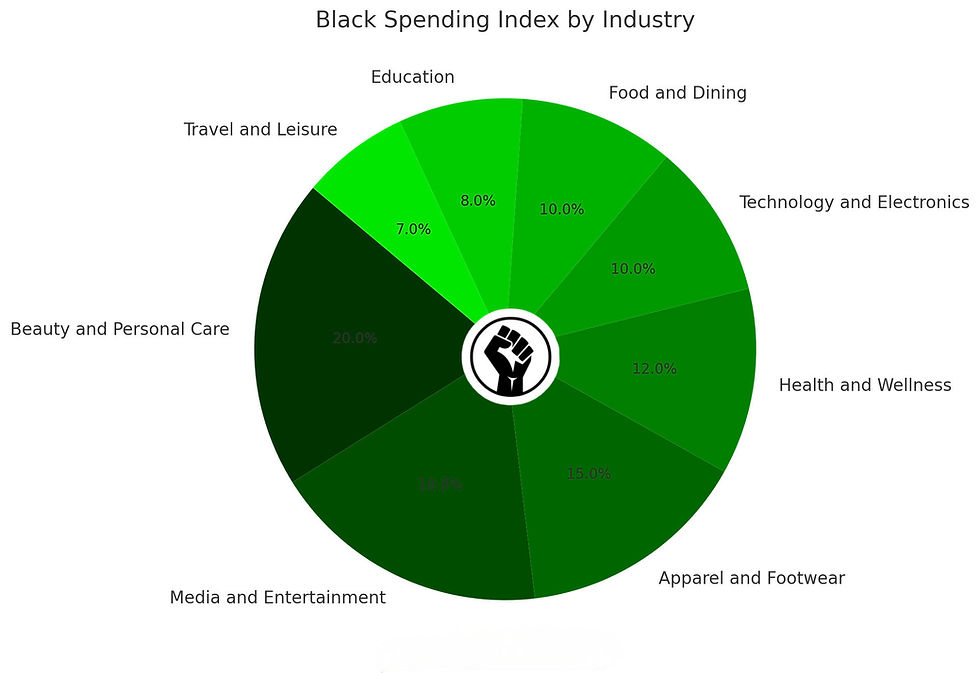The Financial Pitfalls of Wokeness: Understanding the Consequences of Social Responsibility
- Al Lloyd

- Aug 6, 2025
- 4 min read

In recent years, the term "wokeness" has sparked heated discussions, especially in the business world. Companies are increasingly adopting social responsibility measures, showing support for various causes, from environmental sustainability to social justice. While these efforts are often well-intentioned, they come with significant discussions about their impact on a company’s profitability and overall financial health.
In this blog post, we will explore the financial challenges companies might face when they take a strong woke stance. We will look at potential backlash, changes in customer behaviors, and the long-term sustainability of these commitments, offering insights to help companies navigate this complex landscape.
Understanding Wokeness in the Corporate Context
Wokeness means being aware of social injustices and inequalities. In business, this translates to adopting practices that support a company's ethical stance on issues like race, gender equality, and environmental impact.
Although the intentions behind these commitments are typically positive, they can create dilemmas for businesses. Companies that push wokeness aggressively risk alienating some customers and sparking significant backlash.
The Backlash Phenomenon
One of the main risks of embracing a woke approach is the backlash phenomenon. When businesses take a public stance on social issues, they may face scrutiny from customers and stakeholders who disagree with their views.
For example, companies that promote diversity initiatives may experience boycotts if customers feel the messaging doesn’t align with their values. A study indicated that 30% of consumers have boycotted a brand due to a disagreement over its stance on social issues. This could lead to a decrease in sales, negative publicity, and a damaged reputation that might take years to repair.
Case Study: The Brand That Faced Backlash
Consider the popular retail brand that launched a campaign focused on inclusivity and diversity. Although the campaign aimed to foster positive change, many customers criticized it as disingenuous. Within months, the company reported a 20% decline in sales, highlighting how misreading audience sentiment can have serious financial repercussions.
Market Dynamics and Consumer Sentiment
Grasping market dynamics is essential for any business considering a woke approach. Understanding customer demographics, preferences, and values helps companies assess whether a wokeness strategy will resonate positively.
Consumer sentiment can change quickly. Research shows that about 76% of younger consumers prioritize brands that engage in social responsibility. However, they are discerning and do not automatically support every initiative under the umbrella of wokeness. Companies should be prepared to adapt their strategies based on customer feedback and changing social climates.
The Cost of Customer Alienation
When a company builds its identity around wokeness, it risks alienating customers who feel the brand no longer reflects their values. Some businesses have lost loyal customers, resulting in dwindling brand loyalty and potentially affecting stock market performance.
For instance, consider a company that has historically attracted customers with its low prices and quality products. If it suddenly prioritizes social issues in its marketing instead of focusing on value, it may lose touch with what initially drew consumers to its brand, leading to substantial financial losses.
Long-term Financial Sustainability
It's crucial to consider the long-term implications of social responsibility initiatives. Many companies adopt short-term strategies to look socially responsible without planning for sustainable efforts.
Investing in genuine, long-term initiatives often requires ample resources and may temporarily hinder short-term profits. Companies must strike a balance between meaningful social responsibility and maintaining profitable business operations to avoid financial strain.
The "Woke Tax" — A Financial Burden?
The "woke tax" refers to the financial burdens that companies face when they prioritize ideological commitments over their core business goals. This tax may manifest as higher operating costs or investments in diversity programs that do not yield a corresponding financial benefit.
A Cautionary Tale of Misallocation
One instance involved a major corporation that poured millions into a sustainability campaign. However, consumer engagement was minimal. Despite the company's hopes to improve its brand image, the financial return was negligible compared to the scale of its investment, demonstrating the risks of misallocating funds.
Navigating the Dilemma: Strategies for Transparency and Authenticity
Companies can successfully navigate the complexities of wokeness while remaining profitable. Here are a couple of straightforward strategies that can enhance transparency and authenticity:
1. Focus on Authentic Engagement
Developing genuine relationships with communities rather than practicing tokenism is critical. For instance, companies can partner with local organizations that align with their values, leading to meaningful change and stronger community ties.
2. Strategic Alignment of Values
Align business practices with core values to ensure social initiatives complement operations. For example, if a company values sustainability, its initiatives should clearly reflect this commitment in its operations, such as using eco-friendly materials.
The Role of Education and Awareness
An essential part of adopting wokeness in business is investing in education. Ensuring that employees and management understand the social issues addressed creates a culture of responsibility that resonates with customers.
Empowering Employees for Genuine Representation
Education enables employees to genuinely advocate social initiatives instead of merely scratching the surface. When employees can communicate the company’s goals and stance, it fosters a sense of collective responsibility that positively influences brand perception.
Ethical Considerations: Beyond Profitability
While the financial effects of wokeness are crucial, companies must not overlook their ethical responsibilities. Recognizing moral obligations to communities and stakeholders is vital for long-term success.
The True Cost of Inaction
Neglecting social issues can lead to damaging ramifications that far outweigh short-term financial losses. Companies that ignore social responsibilities may suffer reputational harm that is hard to reverse and could result in permanent loss of customer trust.
Final Thoughts
The relationship between wokeness and financial success presents businesses with both opportunities and risks. While embracing social responsibility can enhance a brand’s image and foster customer loyalty, it also comes with the risk of alienating existing customers and incurring financial setbacks.
The phrase "when you go woke, you go broke" serves more as a caution than a definitive truth. Companies must adopt a thoughtful and inclusive approach to wokeness, focusing on education, transparency, and authenticity. By doing so, they can maintain profitability while also representing their values.
Businesses equipped with a deep understanding of their audience and market dynamics can effectively navigate the complex arena of social responsibility, setting the stage for long-term success and ethical alignment.

As the socio-economic landscape evolves, grasping the implications of wokeness will be crucial for businesses aiming to thrive in the twenty-first century.









Comments